ceiling tiles are manufactured in different sizes, patterns, and qualities. For example, in the international market, the price of a 24×48 decorative tile is different from a 24×24 acoustic ceiling panel. Ceiling tiles are lightweight panels used to cover ceilings.
They are perfect for any room in a residential/commercial space. Ceilings come in a variety of types, colors, styles, materials, installation methods, and unique designs and patterns. Custom ceiling patterns can also be created in ceiling tiles.
They enhance the aesthetics of the room and provide some insulation. They can be painted to match the interior’s color scheme.
hand painted ceiling
Most hand painted ceiling tiles are in traditional patterns and styles such as Roman, and Victorian designs. They have an antique look with bronze and gold finishes, and beautiful leaf and floral patterns that are captivating and eye-catching, creating an elegant feel in the room. It also features contemporary designs and patterns for a contemporary feel. Ideal for renovation projects that hide ceiling imperfections.
Powder-Coated Ceiling Tiles
Spray ceiling tiles evenly with a spray gun using electrostatically charged resin powder. They are then cured in the oven to provide a smooth finish. These take less time than hand painted ceilings.
luminous ceiling
Illuminated ceiling with luminous surfaces. They provide even illumination throughout the room.
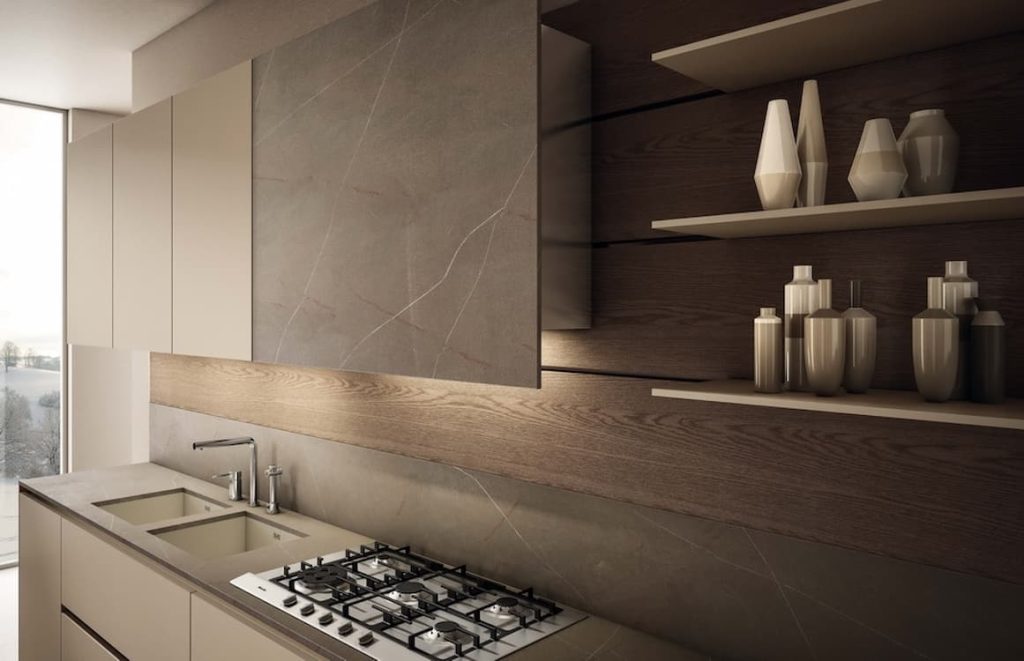
size
Ceiling tiles come in various sizes. The most common sizes are 24″x24″, 24″x48″, 20″x20″.
false ceiling system
The suspended ceiling was created using a metal grid system that uses a series of wires to hang below the ceiling. The ceiling is laid between these metal grids. Depending on the appearance, the metal grid can be exposed, recessed, or hidden.
Exposed Grid – The metal grid is visible in which the panels/tiles are placed.
Embedded Grid – Partially Hidden Grid System
Hidden Grid Tile Hidden Metal Grid System
Material
Tiles are made of different materials.
Metal – Aluminum
copper
steel
Metal is attractive and can be incorporated into different designs and patterns. They are durable and largely protected from moisture damage. Compared to wood, metal is termite resistant and also fire resistant.
The disadvantage of metal is that it has the potential to rust in the future. Installation is difficult compared to other tiles.
PVC
PVC (polyvinyl chloride) is a very lightweight and durable ceiling material. They are easy to maintain. Compared to wood, these tiles are waterproof and resistant to termites. However, as plastic products, they are not environmentally friendly.
Type – Imitation Tin Brick (reproduces the appeal and appearance of real tin (metal))
Faux tin tiles are used as an alternative to real tin because they are cheaper than real tin, it is easier to change the size of the tiles, and faux tin does not echo.
Styrofoam
Styrofoam tiles are made of extruded polystyrene. There are two options for this – either leave it tiled, or laminate the tiles. Lamination protects tiles from dampness and dampness. Provides sound and thermal insulation compared to metal.
These tiles cannot be used as ceiling tiles, but are glued directly to the ceiling. Great for hiding imperfections on ceilings.
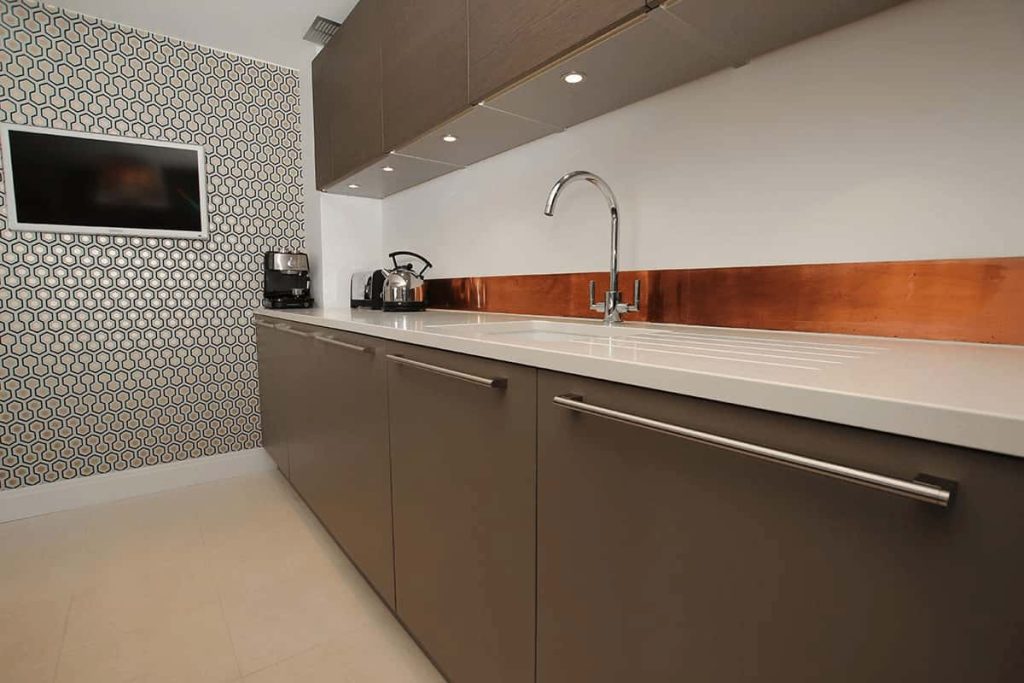
Polyurethane
Different substances: urethane, urethane, polyurethane. These tiles are expensive and durable for indoor and outdoor use. Weather resistance, rust resistance, mildew resistance, etc.
Mineral fibers, glass fibers, and mineral wool – sound-insulating tiles – sound-insulating materials play a role in reducing the noise level in the room. A few other materials are plaster, fiberboard, fabric, vinyl, plastic, etc.
Compatible Surfaces
The few surfaces that are compatible with ceiling tiles are:
- concrete surface
- plaster
- wood and plywood
- ceiling
- drywall
installation type
- Drop-in
Fall into the ceiling grid. Spaces are created above tiles suspended from the ceiling of the main structure.
advantage:
- Electromechanical equipment is hidden, enhancing the aesthetics of the room.
- Provides thermal and sound insulation.
Surface Mount/Glue-up
Install directly to the ceiling using adhesive/glue. Adhesives depend on the type of tile used and compatible surfaces. A few tiles come with adhesive.
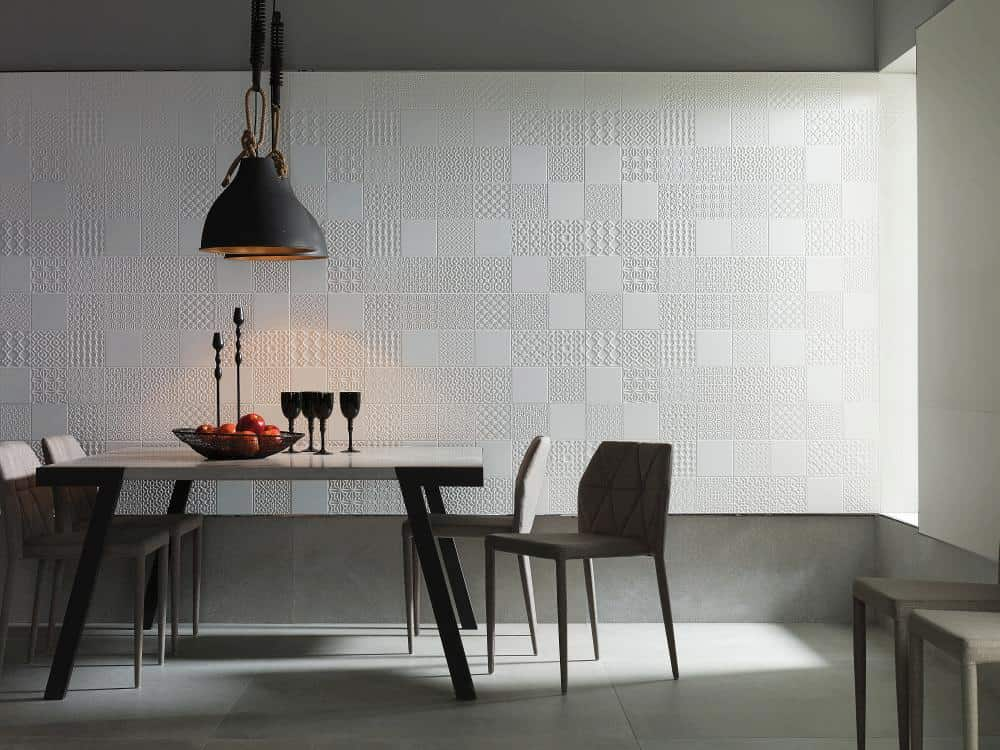
advantage:
- Easy to install as no grids and frames are required.
- Hide ceiling flaws/cover damaged plaster or popcorn ceilings.
Nail up
Tiles need to be nailed in place.
style
Ceiling tiles can be used to complement different interior design styles. some of them are
- Art Deco
- contemporary
- modern
- the Mediterranean
- Rome
- traditional
- country style
- tropical
- Victorian era
- vintage wine etc.
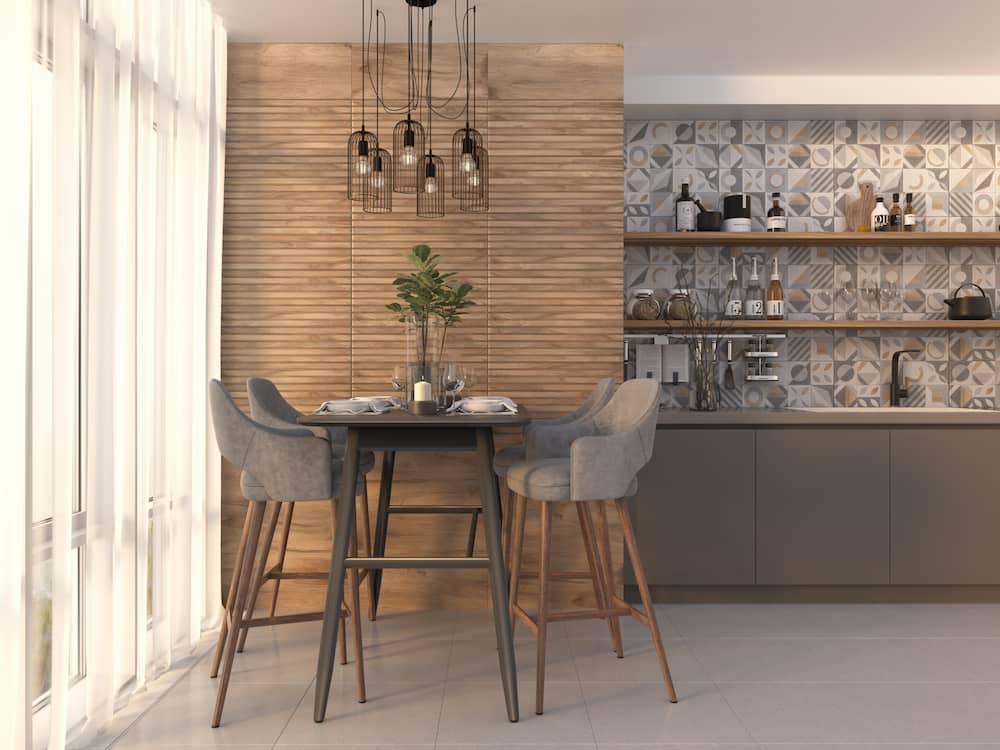
decorative tile price in the market
the decorative tile, as a best seller tile in the market, is manufactured with different materials which can affect the price. Installed tiles cost between $9 and $215 per square foot.
Labor typically runs $8 to $14 per square foot, regardless of tile type. The tiles themselves cost from $1 to $200 per square foot without establishment. Costs vary by tile material, with man-made tiles (such as vinyl, ceramic, and porcelain) costing much less than natural stone, especially rare colors or varieties.
tile price
Tile prices vary from $1 to $200 per square foot. Affordable ceramics, travertines, and sell for $1 to $30 per square foot, while glass tiles can sell for as much as $100 per square foot, and high-end stones like rare colored granite can sell for as much as $200 per square foot.
Tile Costs by Type
The material you choose has the biggest impact on the cost you pay for your tile project. While budget-friendly tiles start at $9 per square foot, if you’re looking for something extra flashy or luxurious, expect to pay up to $215 per square foot to install.
Let’s take a look at a few of the foremost prevalent sorts of tiles and their average establishment costs, counting materials and labor.
Ceramic products
Tiles cost between $9 and $44 per square foot, and the tiles themselves cost between $1 and $30 per square foot. These tiles are clay-based and fired with a matte or glossy glaze.
For floors, the finish is usually matt and textured to provide good traction. Because they are double fired with a glass top, these tiles are waterproof and can easily withstand the high humidity in the bathroom. The tile installer you hire can help you choose the right finish.
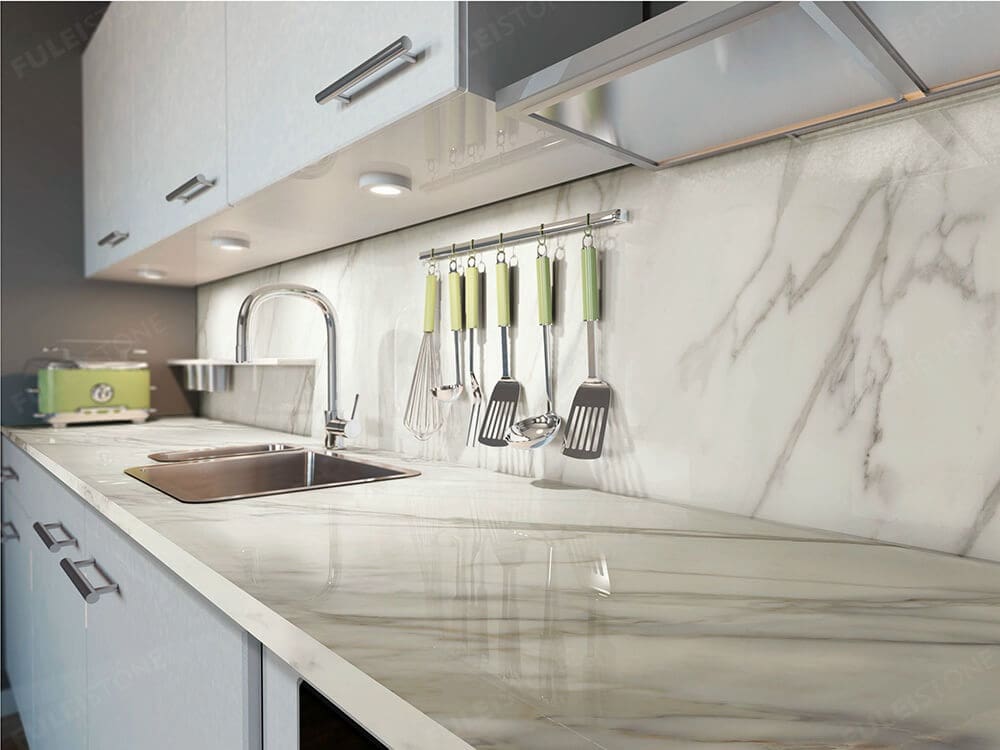
porcelain
Tile costs range from $11 to $44 per square foot, including labor. This type of tile is another type of kiln fired tile, but uses a different production process, resulting in a harder material. Although it is often glazed, this is not required.
There are other tiles with a wood look or a cement-like finish. Porcelain is a very popular tile for walls, floors, and showers because it is affordable, extremely durable, waterproof, and not prone to cracking or chipping.
mosaic
For mosaic tiles, expect to pay $13 to $21 per square foot, including installation. Depending on the size of your mosaic tiles, you may pay more for labor due to the extra time required to place small tiles.
Mosaic tiles on large strips are easiest to install. Glass mosaic tiles are easy to clean and maintain, and their many grout lines provide good traction, making them a popular choice for shower floors.
Glass
Materials and installation costs for glass tiles range from $28 to $114 per square foot. While larger glass tiles can be used on walls, typically only 2″ small mosaic tiles are used for floors.
When larger size glass tiles are installed on the floor, they tend to be mixed with other materials such as resin, metal, or grindstone for added strength and resiliency. Glass is a popular tile choice because it’s easy to clean and maintain, and it’s waterproof without sealing.
Pebbles
Pebble tiles can cost between $38 and $54 per square foot to install. Cobblestone labor tends to be on the higher end because even if they adhere to the mesh backing, they require a lot of very precise grout, which is a time consuming job.
They are a good choice for bathrooms and showers because they provide excellent traction and are comfortable to walk on.
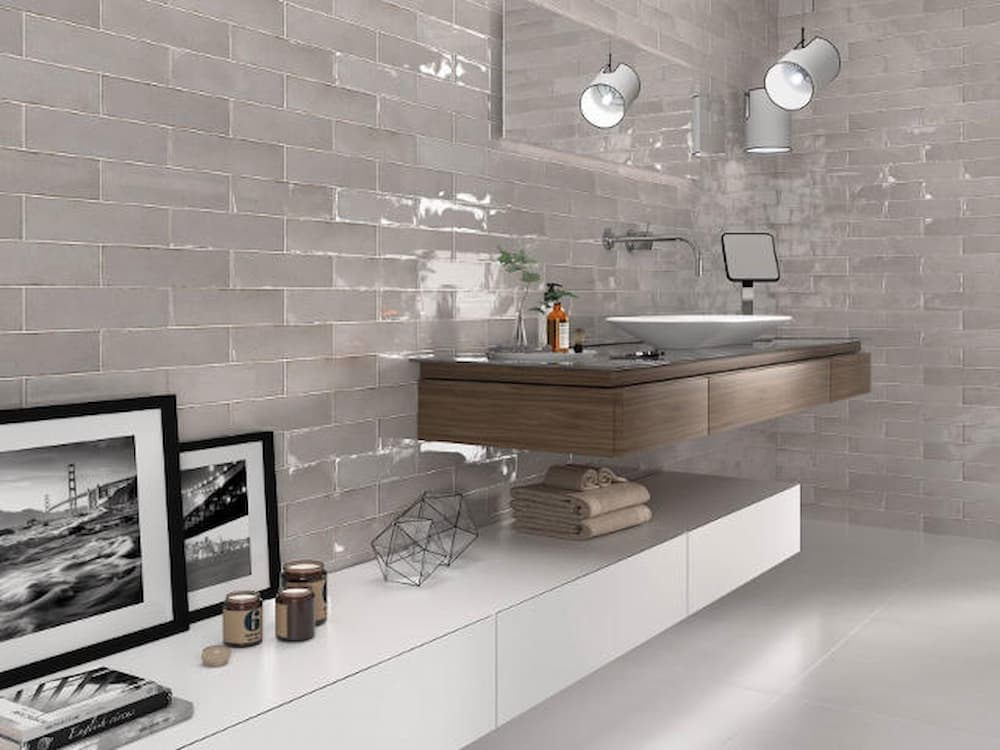
Travertine
For travertine tiles, install an installation budget of $10 to $44 per square foot. Travertine tile is a natural stone similar to limestone.
In its natural state, the travertine has holes and tunnels running through it, so before it can be used in residential installations, these holes must be filled, usually with epoxy, and the top sealed before the tile is ready for installation.
Its natural appearance, natural non-slip texture, and unique appearance make it popular with rustic aesthetics.
Natural Stone
Natural stone tile installation costs $10 to $200 per square foot, all inclusive. Besides travertine, the most popular types of stone floor tiles are:
granite
limestone
sandstone
marble
slate
Natural stone tiles are often used as floors, kitchen counters, walls, or backsplashes. Some, like marble, are not suitable for use in the kitchen because they stain easily, even with regular maintenance.
Granite is a popular choice because it is easier to care for than marble and, if properly sealed, is immune to water spots and stains. Like most natural stones, it is also very durable.
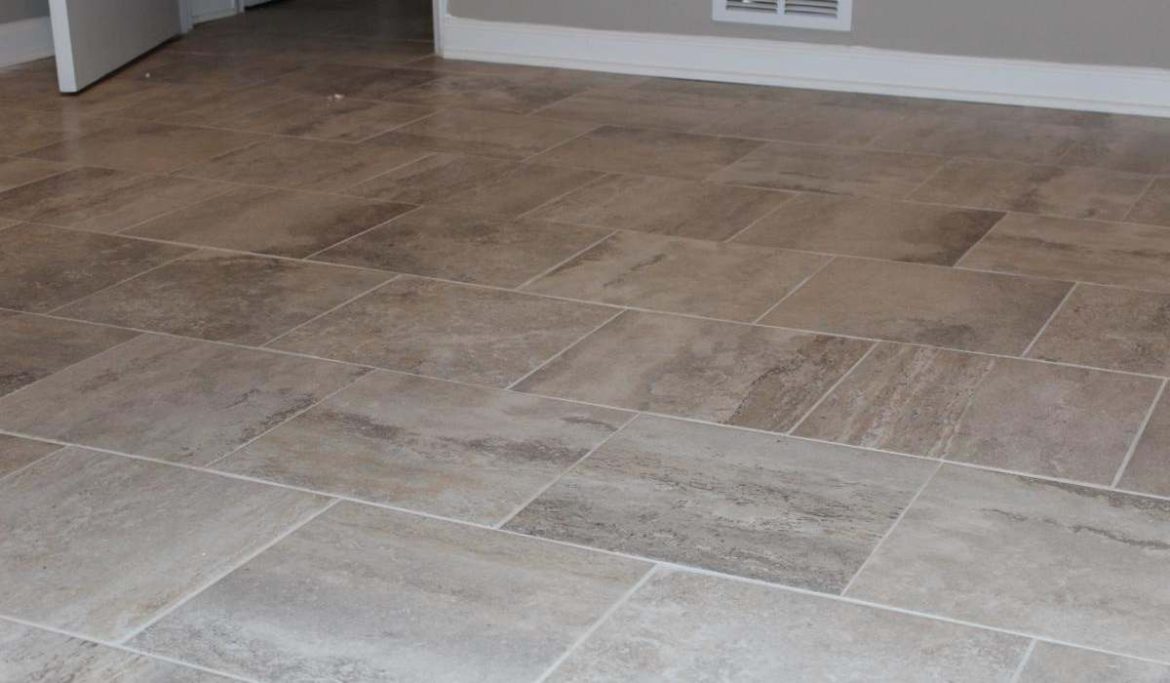
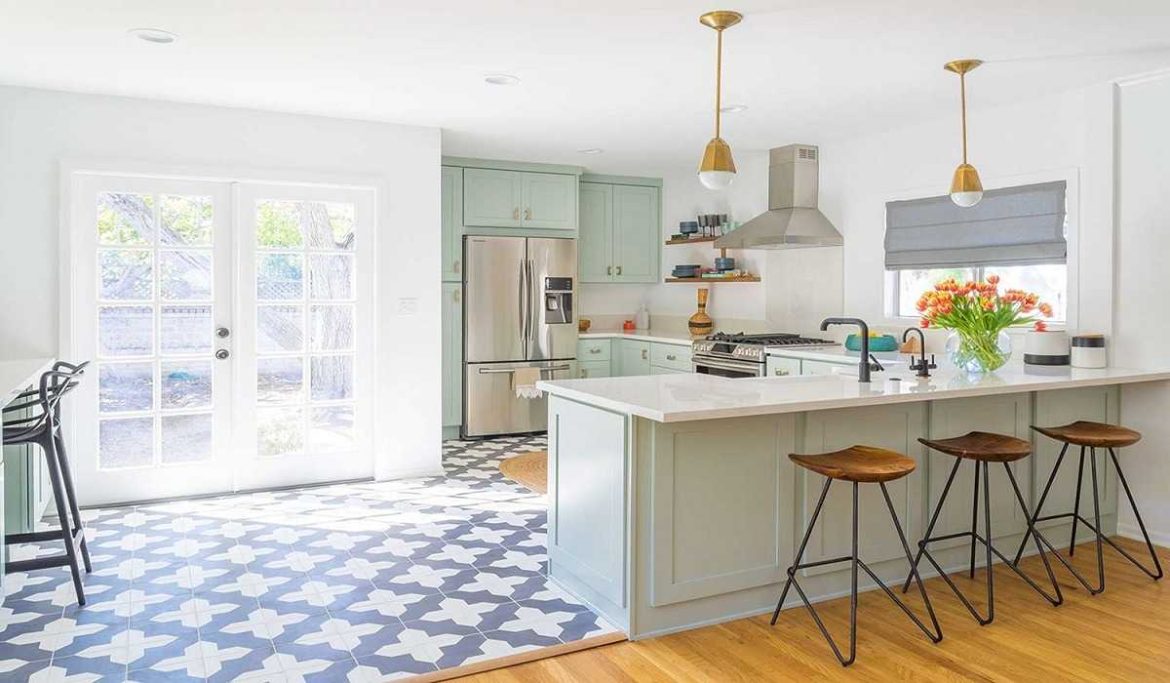
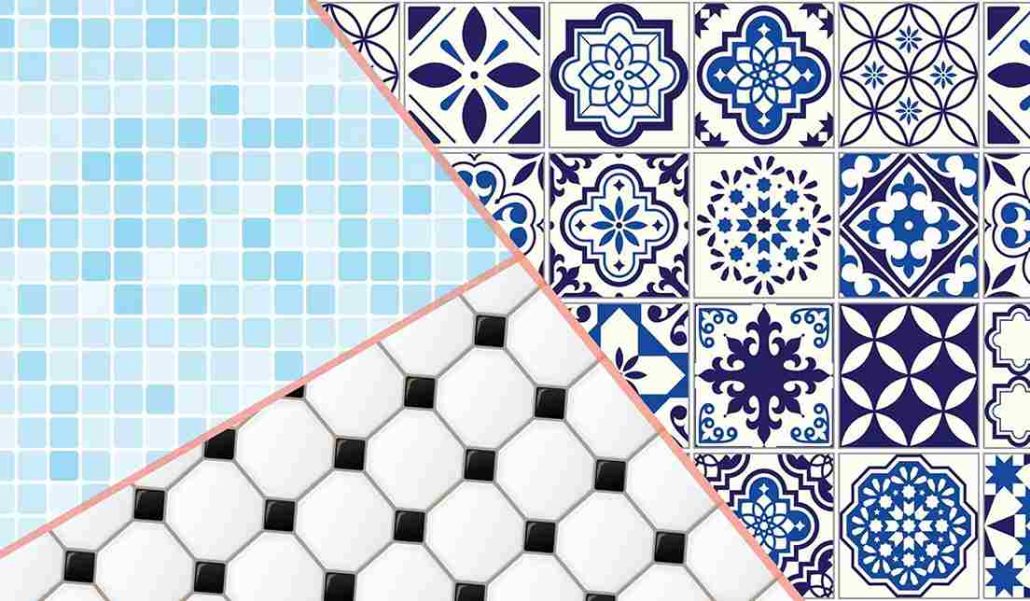
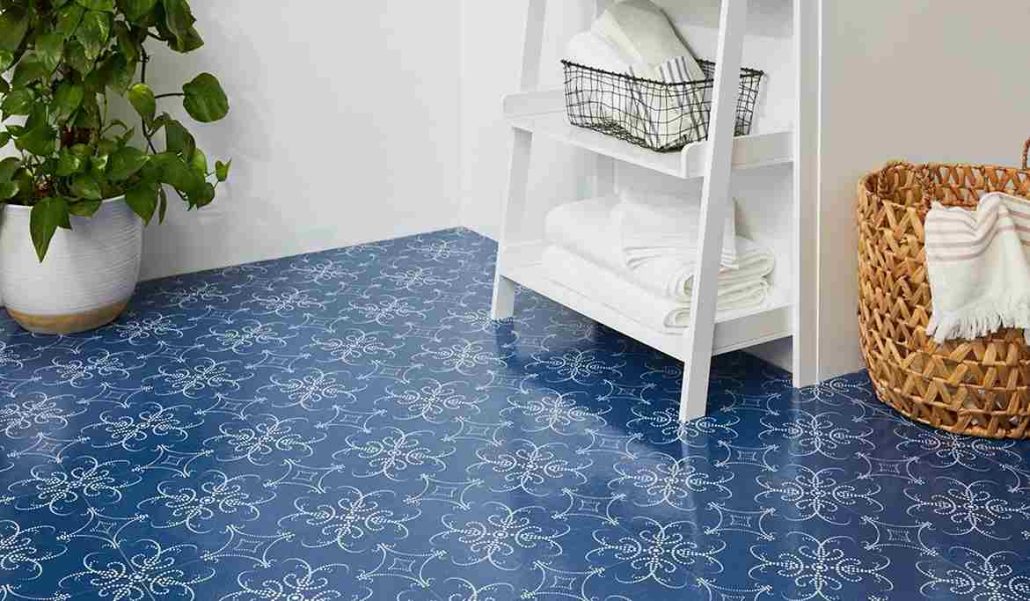
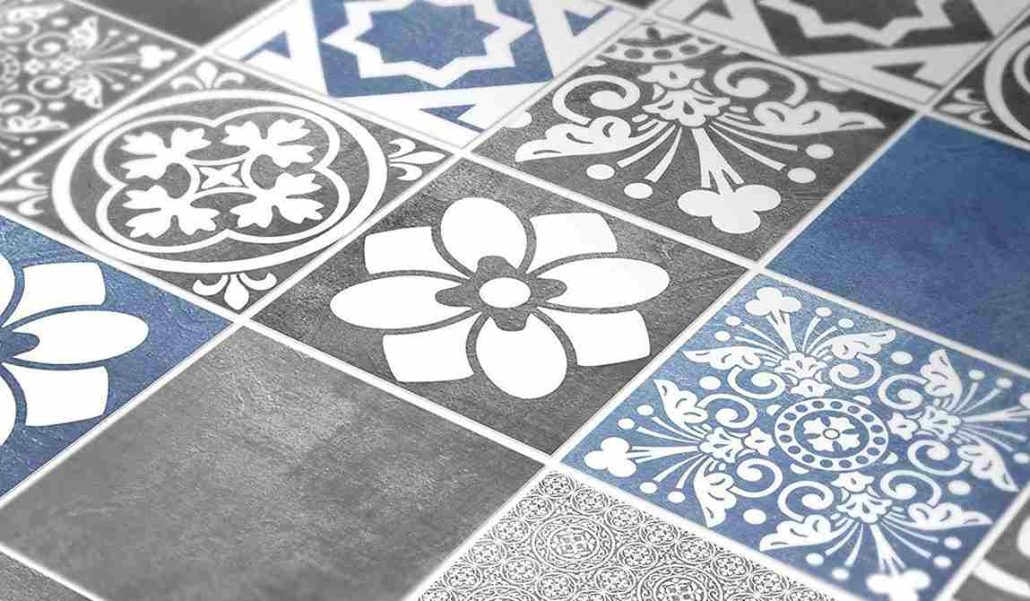
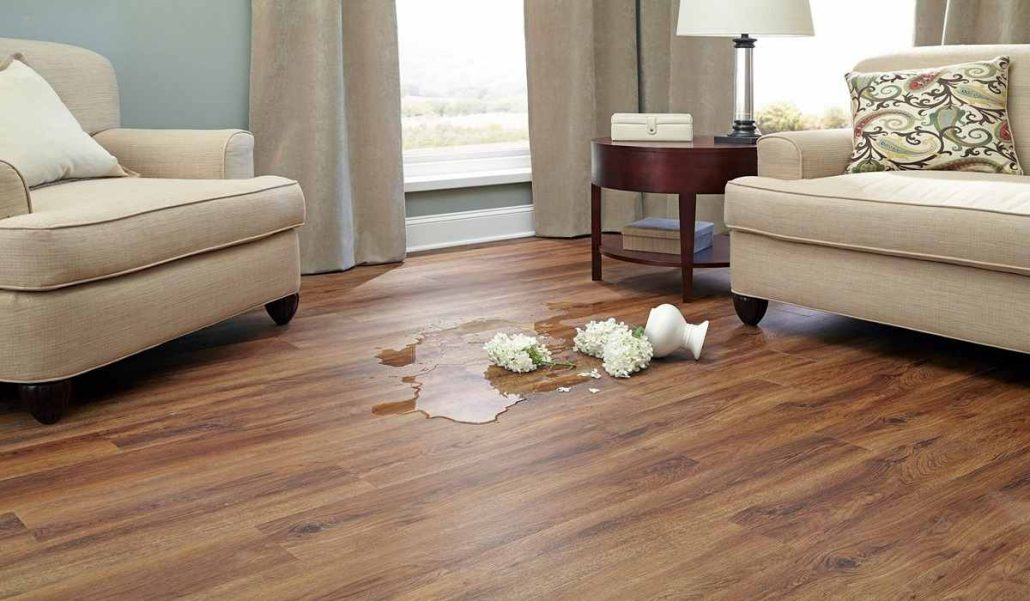
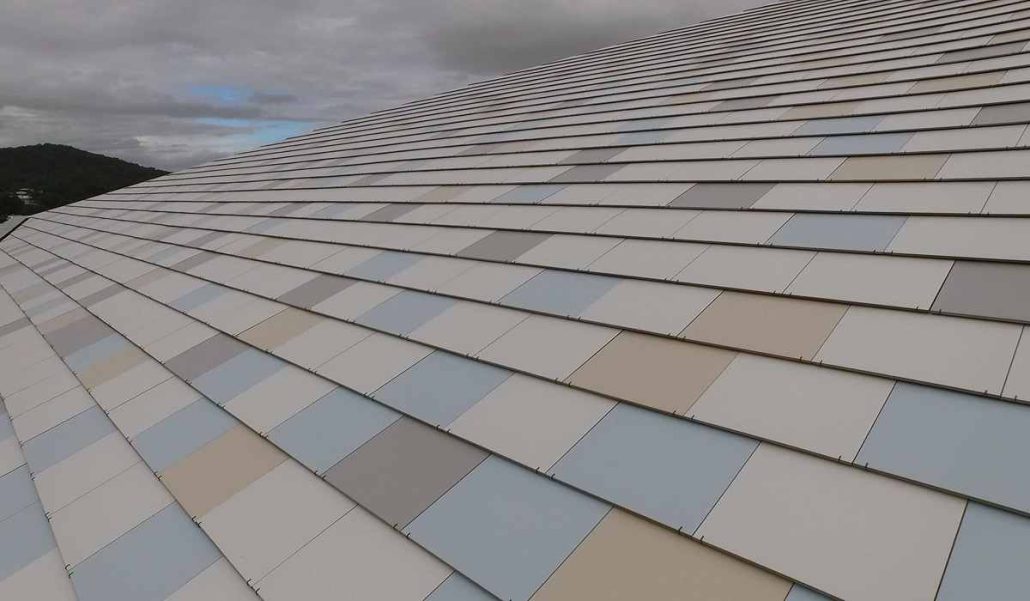
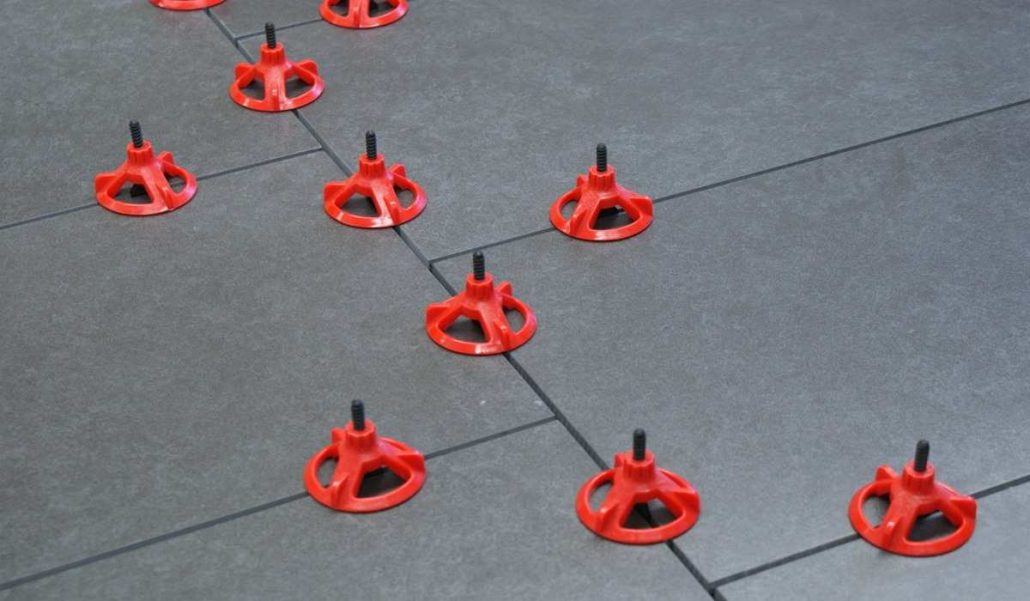
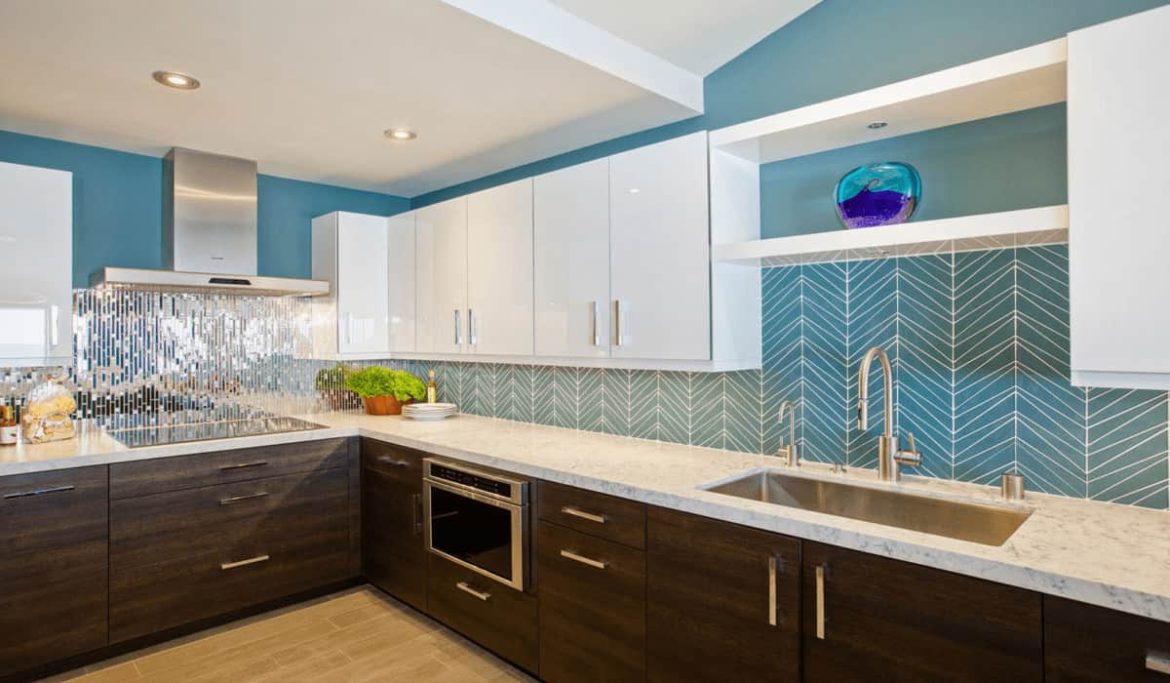
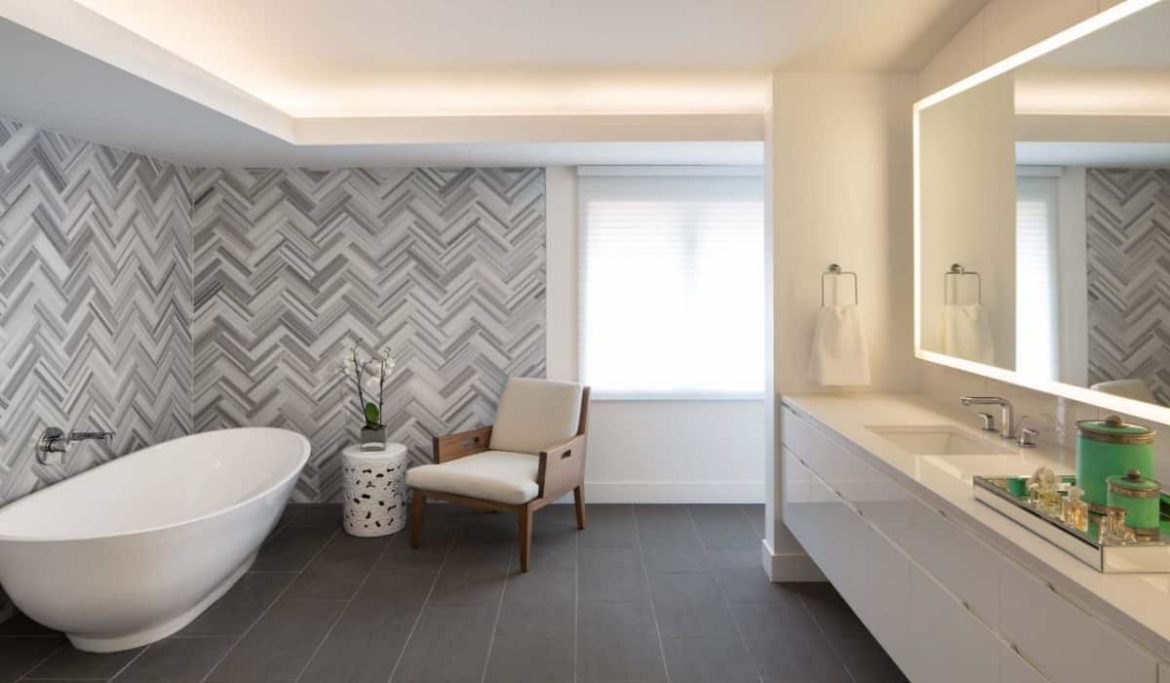
Your comment submitted.